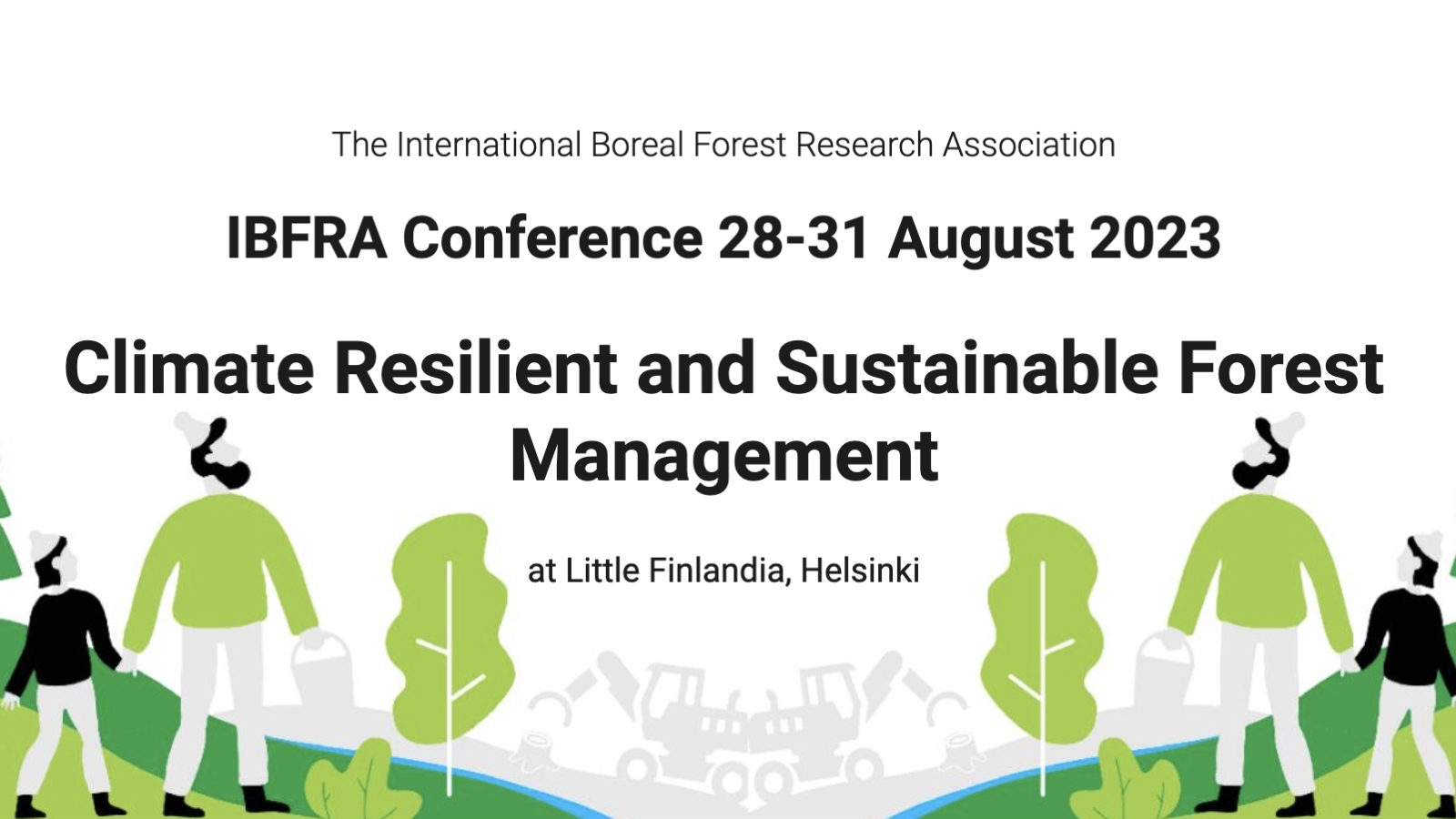
Mark your calendars for the upcoming IBFRA Conference happening from 28 to 31 August 2023, hosted by the Natural Resources Institute of Finland and the International Boreal Forest Research Association (IBFRA). This conference offers participants the flexibility to attend in person or follow the event remotely. For additional details, visit the official website.
Background
The boreal forest, Earth's second-largest terrestrial biome, is currently undergoing unprecedented environmental changes. Shifting climates have led to increased disturbance events like wildfires and insect outbreaks. These transformations are impacting the people who depend on boreal ecosystems for their livelihoods, cultural practices, economic development, and climate stability.
Subthemes of the Conference
The topics explored during the Conference are the following:
- Decision support tools and solutions for sustainable forestry
- Understanding the connections between ecosystem processes and management
- Transitioning from data acquisition to knowledge creation
- Innovative approaches to forest engagement
- Bridging the gap between science and policy
During the conference week, attendees can look forward to keynote speeches, parallel sessions centred around the subthemes, networking opportunities, and training sessions. Additionally, Friday, September 1st, has been set aside for excursions, side events, and project meetings.
Bekir Afsar, Postdoctoral Researcher at the University of Jyväskylä, is joining the conference and presents the current status of the Forest/birds prototype Digital Twin.
Who Should Participate?
This conference is designed for a diverse range of individuals interested in exploring the implications of climate-disturbance interactions within the boreal region, including:
- Researchers and students from both academia and other sectors
- Natural resource managers and representatives from the forest, wood, and energy industries
- Members of indigenous communities
- Representatives from non-governmental organisations
- Government officials and policy advisors
BioDT at the IBFRA 2023 conference
Bekir Afsar, Postdoctoral Researcher at the University of Jyväskylä, joins the IBFRA 2023 conference with a presentation on the current status of the Forest / birds prototype Digital Twin. The abstract of his speech is the following:
"While the world is rapidly developing in the digital era, it also must cope with environmental calamities. The most significant is biodiversity loss due to natural area deterioration and climate change. However, biodiversity, natural ecosystems, and the benefits and services provided by these ecosystems are critical elements for social well-being and progress. Therefore, it is essential to protect forests and biodiversity by managing them sustainably within ecosystem integrity to provide multifaceted benefits to society.
To investigate how forest management strategies and climate change scenarios affect forest biodiversity, the BioDT team is creating a forest digital twin in predicting forest and biodiversity dynamics and how species interact with their environment and each other. The LANDIS-II forest simulator is used to create virtual representations of Finnish forests, while Hierarchical Modelling of Species Communities (HMSC), a joint species distribution model, is used to create biodiversity models. LANDIS-II simulations under various management options, together with climate change scenarios, predict possible future environmental conditions. HMSC models that relate species dynamics to environmental conditions predict how biodiversity responds to those management options and scenarios. The forest and biodiversity models are united under a forest digital twin to promote sustainable management of the forest’s biodiversity and its ecosystems with an acceptable level of accuracy and reliability. To demonstrate the benefits of having the forest digital twin, the team proposes a digital twin application that utilises decision support with interactive multi-objective optimisation leveraging the flagship EuroHPC LUMI’s high-performance computing infrastructure. This approach supports stakeholders in finding the most appropriate forest management strategy considering their preferences as well as the ecological, social, and economic objectives under different climate change scenarios.